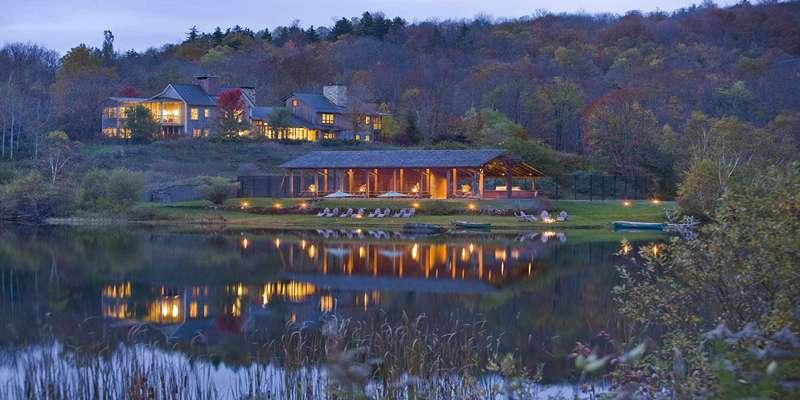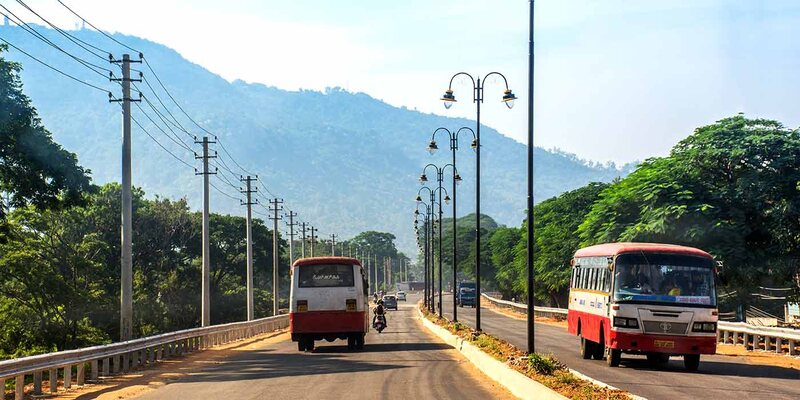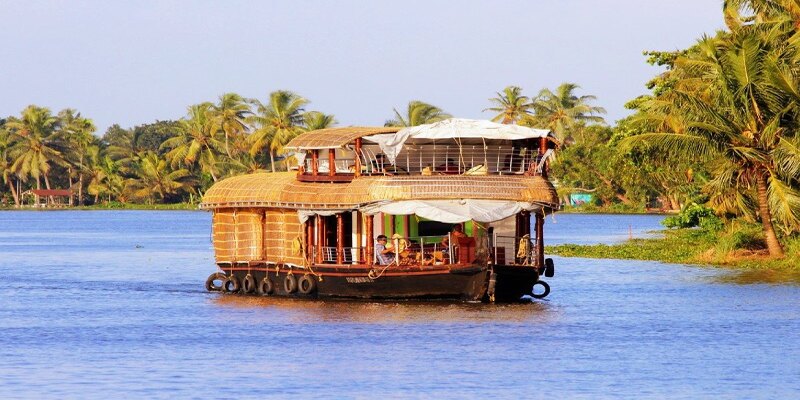Mosques In India That Showcase The Best Of Islamic Architecture
Mar 02, 2024 By Sean William
India's diverse cultural tapestry shelters awe-inspiring mosques, standing as testaments to the nation's rich Islamic heritage. Serving not only as places of worship but also exhibiting the magnificence inherent in Islamic architecture, these sacred structures tell unique stories that blend history with culture and spirituality. In this article, our journey commences to investigate five extraordinary mosques. Each is a masterpiece in its regard.
1. Jama Masjid, Delhi
Commissioned by the Mughal Emperor Shah Jahan, the iconic Jama Masjid is a masterpiece that stands majestically in Delhi's heart. Its completion in 1656 revealed grandeur extending beyond its colossal courtyard capable of accommodating thousands of worshippers. The red sandstone and white marble façade, adorned with intricate calligraphy and floral motifs, prominently displays this mosque's architectural beauty. As one climbs the minarets, a breathtaking panoramic view of Old Delhi is unveiled. It offers an escape, serene, from the bustling city.
Delve into the rich history of Jama Masjid for a more immersive experience, you should explore the adjoining bazaars. You will encounter a plethora of vibrant markets, each narrating an episode in the city's cultural diversity. The air is filled with tantalizing aromas from traditional street food, thereby augmenting your visit with another intriguing layer. When we actively engage with the local merchants and residents, they offer us unique insights into the cultural fabric enveloping this architectural marvel.
- Local Markets: Adjacent to Jama Masjid, explore the bustling local markets for a taste of Delhi's vibrant culture.
- Heritage Walks: Join guided heritage walks around the mosque to uncover hidden stories and historical nuances.
2. Mecca Masjid, Hyderabad
Mecca Masjid, a symbol of Deccan architecture, nestles in the heart of Hyderabad. Sultan Muhammad Quli Qutb Shah's reign saw the construction and completion of this grand mosque. This is a testament to historical richness that accommodates up to 10 (ten) thousand devotees. Bricks brought from Mecca and embedded in its central arch lend it its name: Mecca Masjid. Mecca Masjid beckons as a must-visit, offering a glimpse into the architectural splendor of the Deccan through its stunning prayer hall and grand courtyard.
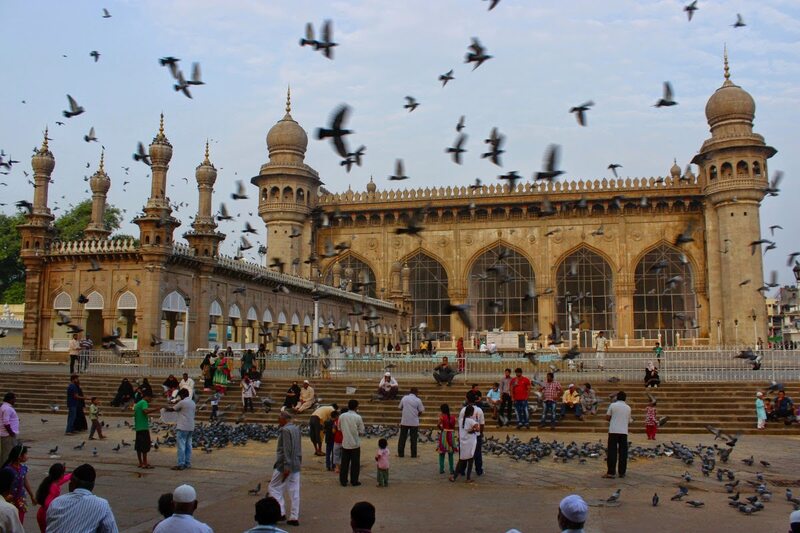
Embark on a culinary journey through the nearby markets to fully appreciate the cultural tapestry enveloping Mecca Masjid. The region is renowned for its delectable Hyderabadi cuisine, which presents an enticing fusion of Mughlai and Deccani flavors. To augment your immersive experience, savor local delicacies such as biryani, haleem, and kebabs.
- Culinary Delights: Explore the nearby markets for an array of Hyderabadi culinary delights.
- Cultural Performances: Check for scheduled cultural performances around Mecca Masjid, celebrating the city's artistic heritage.
3. Fatehpuri Masjid, Delhi
Fatehpuri Masjid in Delhi, a historical gem constructed by Fatehpuri Begum, one of Emperor Shah Jahan's wives, dates back to 1650. The mosque offers a serene respite from the bustling Chandni Chowk. Its red sandstone structure displays architecture marked with simplicity and elegance, with arched doorways combined harmoniously with domes. Situated at the heart of Old Delhi, it silently testifies to history’s shifting currents.
Dive into the adjacent lanes. There, a lively concoction of history and gastronomy awaits your exploration. Local vendors in Chandni Chowk, renowned for its street food, dish out iconic servings like parathas, and jalebis. Not to mention chaat, an absolute must-have! Embark on a leisurely walk through this culinary sanctuary. It's an opportunity to savor authentic flavors that have marked the area over centuries.
- Street Food Delights: Explore Chandni Chowk for an array of delectable street food options.
- Heritage Walks: Join heritage walks around Fatehpuri Masjid to unravel the untold stories of its historical significance.
4. Babri Masjid, Ayodhya
Built by the Mughal Emperor Babur in the 16th century, The Babri Masjid of Ayodhya amalgamates elements from both Mughal and Indian architectural styles. Thus, its construction holds historical significance. Despite being an essential piece of India's architectural history due to its central dome and intricate arches that enhance visual appeal. It remains a center for controversy because it stands on a disputed site.
When you visit Ayodhya, exercise mindfulness regarding the site's sensitive nature. Show respect for local sentiments and initiate thoughtful conversations to develop a deeper comprehension of ongoing discussions and efforts toward reconciliation. Furthermore, Ayodhya earns recognition through its vibrant festivals and cultural events that offer an all-encompassing experience surpassing merely Babri Masjid's historical significance.
- Cultural Sensitivity: Approach the site with cultural sensitivity, respecting local sentiments.
- Festivals and Events: Check for local festivals and events in Ayodhya to immerse yourself in the city's vibrant culture.
5. Moti Masjid, Bhopal
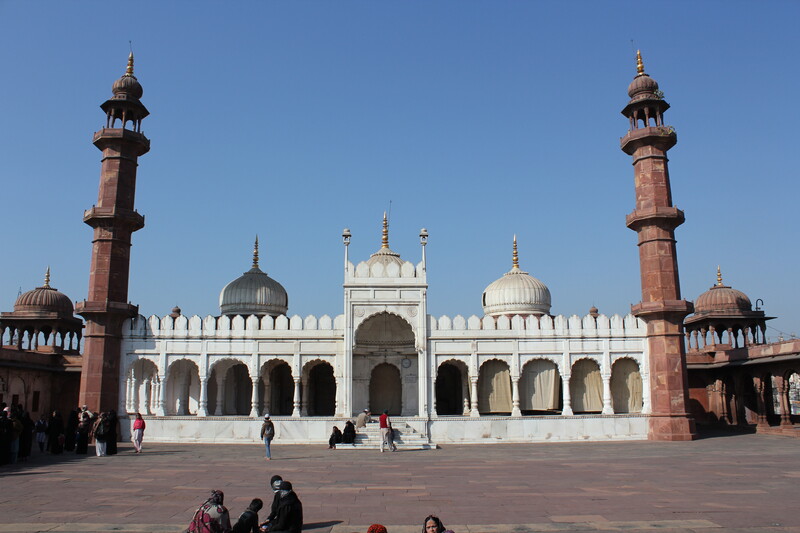
Sikander Begum, the ruler of Bhopal in the 19th century, constructed Moti Masjid as a testament to their city's rich Islamic heritage. Its pristine white marble exterior, earning it the moniker Pearl Mosque, stands tall today. The mosque's three imposing domes and slender minarets present an amalgamation. They fuse Mughal with Persian architectural styles in an impressive showcase. Visiting Moti Masjid provides a tranquil experience amid the historical charm of Bhopal.
Explore Bhopal and venture into the nearby Upper Lake, commonly known as Bhojtal. This 11th-century artificial lake provides a tranquil retreat with breathtaking views. Engage in boat rides or stroll along its shores. Enhance your visit to Moti Masjid by immersing yourself in nature's tranquility.
- Upper Lake Exploration: Visit the nearby Upper Lake for a serene escape amidst natural beauty.
- Cultural Events: Check for any local cultural events or festivals happening in Bhopal during your visit.
Conclusion
In traversing the diverse landscapes of India, one can witness the harmonious blend of Islamic architecture with the nation's rich cultural heritage. Each mosque narrates a unique story, reflecting the historical, cultural, and spiritual evolution of the Indian subcontinent. These architectural wonders stand as timeless testaments to the artistic prowess and religious diversity that define India's identity. Explore the spiritual sanctuaries that house not only the faithful but also the echoes of centuries gone by.

